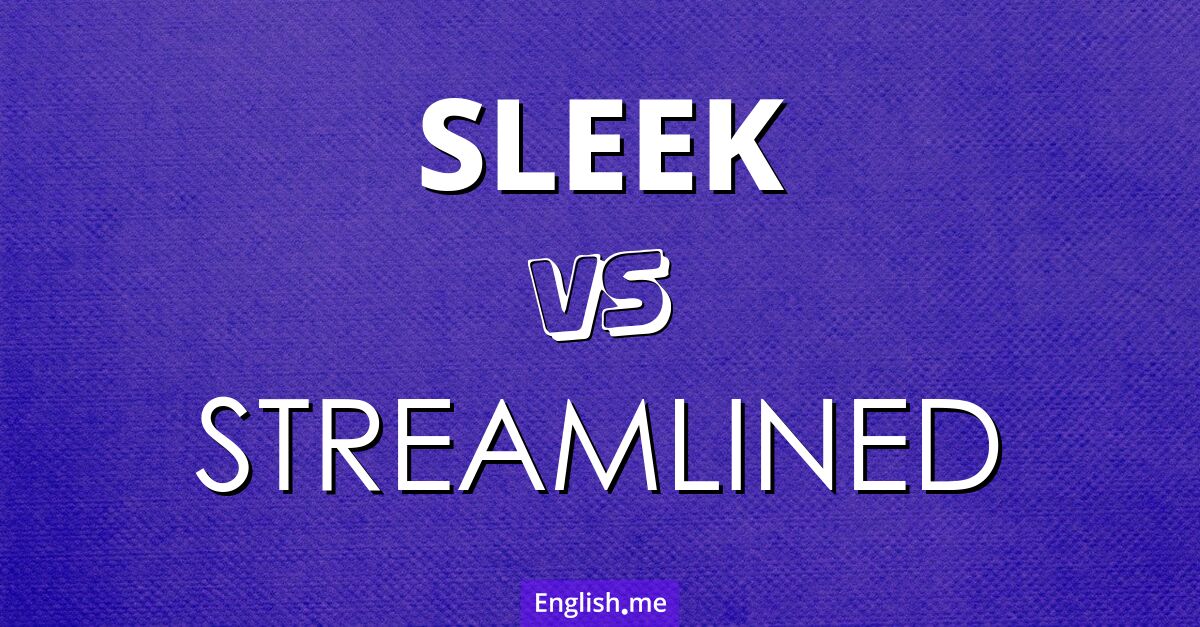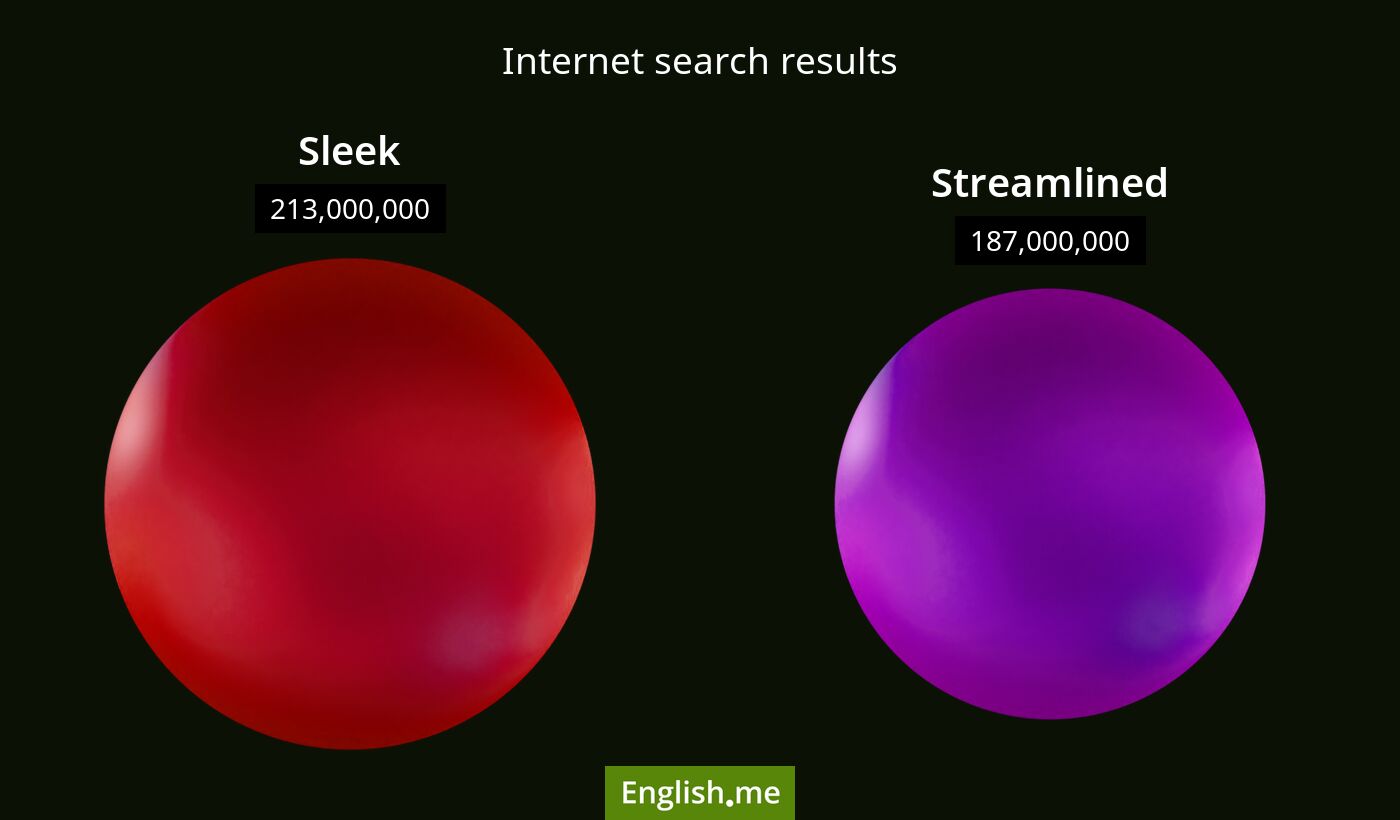Smooth talk: comparing "sleek" and "streamlined"
Reviewed and edited by  Lloyd Cooper 11/10/2024, 04:50
Lloyd Cooper 11/10/2024, 04:50
English.me team member

 What is similar?
What is similar?
Both "sleek" and "streamlined" describe something that is smooth, efficient, and potentially modern in design or function. They both convey a sense of elegance and refinement, often used to describe designs, shapes, or processes that are polished and free of unnecessary elements.
 What is different?
What is different?
The word "sleek" primarily emphasizes smoothness, elegance, and sometimes shininess, often with an aesthetic focus. "Streamlined" focuses more on efficiency, reduction of resistance, and optimization, often used in contexts related to design improvements for performance.
 Which one is more common?
Which one is more common?

 Examples of usage
Examples of usage
Sleek- The car has a sleek design, with its glossy paint and smooth curves.
- His new smartphone was so sleek, with its thin profile and glass finish.
- The company implemented a streamlined process to reduce costs and improve efficiency.
- The new train is streamlined, allowing it to travel at higher speeds with less resistance.

 English
English español
español française
française italiano
italiano deutsche
deutsche 日本語
日本語 polski
polski česky
česky svenska
svenska Türkçe
Türkçe Nederlands
Nederlands